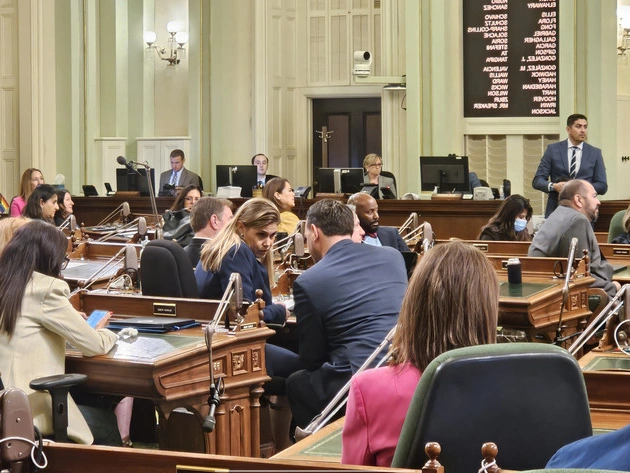
California Democrats are joining forces to address the pressing issue of sex trafficking in the state. In a recent development, Democratic lawmakers have proposed amendments to tighten penalties against individuals who solicit 16- and 17-year-olds for sex. This move comes in the wake of a public disagreement over a trafficking bill, which resulted in lawmakers adopting a more conservative approach to the issue.
Proposed Amendments to AB 379
Assembly Speaker Robert Rivas’ office recently announced an agreement to amend AB 379, allowing prosecutors to pursue felony charges against those soliciting older teenagers. The negotiations that led to this agreement involved Public Safety Committee Chair Nick Schultz and Assemblymember Maggy Krell, a former prosecutor and first-term Democratic lawmaker who initially introduced the legislation.
The revised bill includes a provision that prohibits prosecutors from levying felony charges if the accused individual is within three years of the victim’s age. This measure aims to address concerns raised by progressive Democrats, who feared that the bill could inadvertently target individuals close in age to potential victims. While purchasing sex with a minor would remain illegal, it would be classified as a lower-level offense.
Assemblymember Maggy Krell emphasized the significance of the proposed amendments, stating, “This bill strengthens California law and equips us with the necessary tools to prosecute individuals preying on teenagers. I commend everyone involved in shaping this bill, especially the survivors who continue to advocate for justice.”
Political Divisions and Collaborative Solutions
The debate surrounding the inclusion of older teen victims in a new soliciting law sparked tensions within the Assembly, leading to divisions among Democrats and providing Republicans with ammunition for their campaigns. Progressive lawmakers voiced opposition to the expansion, citing concerns about escalating criminal penalties and the potential misuse of the law by certain groups.
Last week, Assemblymember Maggy Krell aligned with Republicans to trigger a floor vote in the Assembly, seeking to reinstate the provisions related to 16- and 17-year-old victims that had previously been removed from the bill. In response, Speaker Rivas dissociated Krell from the legislation, prompting Democrats to introduce amendments promising additional safeguards for older teenagers.
The incident on the Assembly floor inadvertently fueled discussions on sex trafficking, allowing Republicans to criticize Democrats on a historically sensitive issue for the party.
The Assembly Appropriations Committee is set to review the proposed changes on Wednesday, reflecting a collaborative effort to find common ground and enhance California’s existing laws and penalties related to sex trafficking.
Conclusion
As California Democrats navigate the complexities of addressing sex trafficking issues, their unified approach underscores the importance of bipartisan collaboration in tackling societal challenges. By proposing amendments to strengthen existing laws and protect vulnerable populations, lawmakers aim to create a safer and more just environment for all Californians.











